Compared to the south-south states of Bayelsa and Rivers, the Edo state governorship election was very peaceful. Despite the pockets of violence, ballot snatching, intimidation of the electorate, and other factors which our elections in this part of the world are known for, the poll was largely free.
The presence of security operatives was nothing compared to that of the two aforementioned states. Voters, especially in Benin, drove to their polling stations without harassment.
I arrived in Edo on Monday and headed straight for the Ikpoba Hill headquarters of the Independent National Electoral Commission (INEC) in the state capital, before checking into my hotel. From there, I headed for the Nigerian Union of Journalists (NUJ) secretariat in GRA, Benin.
Whenever I find myself in a place that I am not familiar with, I take delight in observing trends in the new environment. I enjoy seeing people go about their duty, the roadside sellers and hawkers trying to eke out a living, the cab operators who are ever ready to fleece strangers, hearing people communicate in their native languages, even though I do not understand. These things have a way of inspiring me.
Advertisement
GOOD TO BE A WOMAN IN BENIN
A scene, which I bumped into around Sapele Road in the ancient city, amazed me. A lady was involved in a heated argument with a middle-aged man. The man was the conductor of a bus she boarded earlier. The cause of their argument was N50. “Give me my change, you be thief!” She screamed.
Sensing that he wouldn’t give in, she stood in his way. Annoyingly, the guy shoved her. In less than two minutes, people had gathered. Three vehicles heading towards different directions parked, an elderly man who was walking by also stopped, two hawkers, and the reporter, who knows other people’s business is his, alongside some onlookers.
No one would listen to the conductor’s explanation; we all took side with the lady. “How dare you treat a woman like that?” A man asked in annoyance. Trust women, despite pulling a crowd of sympathisers, she wouldn’t allow her tormentor have the last word.
Advertisement
That encounter might not make any sense to you, but compare to that of Ogechi Ekeanyawu, my colleague, who was in broad daylight intimidated by a ‘heavily-built man’ at Surulere, Lagos.
“Taiwo, the most surprising thing was that no one stopped by to ask why he was bullying me in the presence of my son. The man kept hitting the windows of my car, and eventually destroyed my side mirror,” said Oge.
With what I saw on that day, no one dare tries such a thing in Benin.
ELECTION DAY PROPER
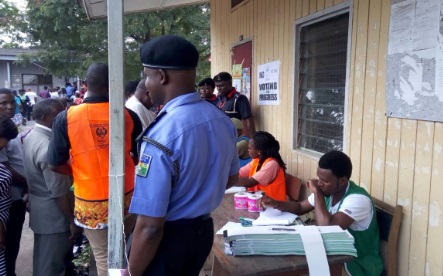
From interactions, I concluded that it was going to be a fierce contest, and there was a likelihood of violence. I said my prayers before hitting the road. As we moved in streets, I saw people heading for their polling units in droves.
Advertisement
I learnt that they started trooping out as early as 6am. People were interested in the exercise, and they wanted their votes to count at all cost, but whether it did eventually, is beyond my comprehension.
The first polling station I visited was Imaguero College, Benin. There were about seven polling units there. A security team comprising of men of the Federal Road Safety Corps (FRSC), Nigeria Police Force, and Nigerian security and Civil Defence Corps (NSCDC) were on the ground.
Save for arguments, which almost degenerated into fisticuffs, the exercise went on smoothly. Having realised the keen interest I paid to an open disagreement, Felix Omoruyi, whose house is a few meters away, walked up to me and said: “My brother, don’t worry. We can’t fight. We are all one, even though we belong to different parties.”
INDUCEMENT OF VOTERS: LIKE APC, LIKE PDP
Advertisement
The first act of inducement I witnessed was at a primary school in Ikpoba-Okha local government area, and supporters of the All Progressives Congress (APC) were behind the ignominious act. About 10 young men clustered around the man who was doling out the pittance.
At Staff Training Center, Okada Avenue, Benin, which was the polling unit of bigwigs like John Oyegun, national chairman of the (APC); Idia Ize-Iyamu, wife of the candidate of the Peoples Democratic Party (PDP); and Gabriel Igbenedion, billionaire businessman (he didn’t vote there this time around), those distributing money made use of a small hall beside the gate.
Advertisement
When I took up Ize-Iyamu’s wife on the issue of inducing voters, she blamed it on the APC. “We are watching so far. The APC has been inducing voters, giving them N3,000, N2,000. We have documented the evidence, and we have been alerting security agencies,” she had said.
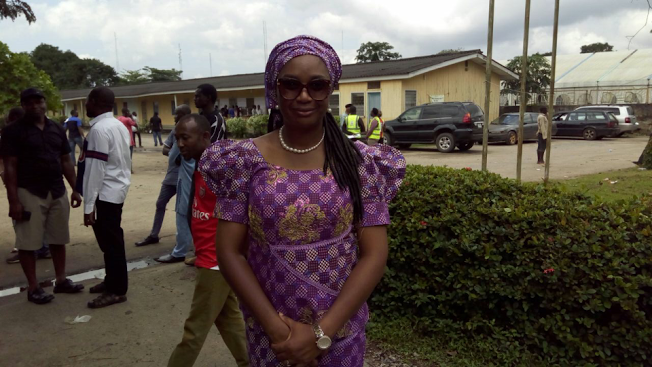
Less than 20 minutes after the interview, I was filing a report outside the venue when a young man carrying two packs of food dashed into 6, Okada Avenue, Benin.
Advertisement
“I no vote for PDP for nothing. Make I chop this one first, I go collect the money later.”
Within moments, a crowd had encircled a black Land Cruiser jeep parked directly opposite the gate of Staff Training Center. The boot of the vehicle was open, while a lady acting on instructions, gave out food packs.
Advertisement
Save for a venue in Ikpoba Hill where police fired teargas canisters to disperse rampaging youths, I didn’t witness any incident of violence, but colleagues who did relayed their experiences to me, and they were nothing compared to the typical electoral violence the region is known for.
OYEGUN A SERIAL LOSER?
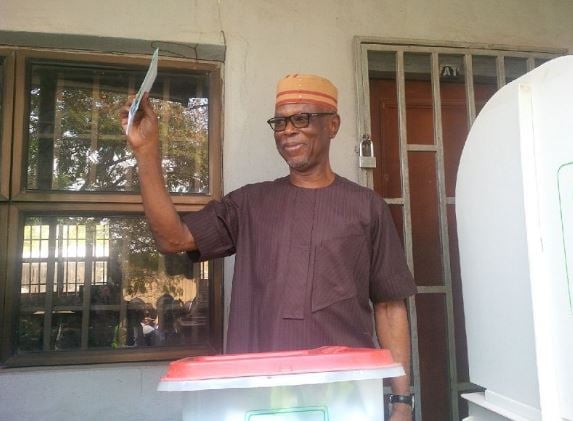
Oyegun became the butt of jokes over his inability to deliver his unit. The PDP candidate defeated his rival by nine votes at unit 1, ward 002, Oredo local government area, where the APC national chairman cast his ballot.
He had earlier told reporters that he was impressed by the massive turnout, describing it as a sign of good things to come.
“This is the first time that I am seeing such a huge crowd here… this is also the first time that I will address such a large number of journalists,” he had said.
Responding to my surprise over how a former governor and the number one man in the party (at least in hierarchy) could not prove his worth, a reporter said: “It’s obvious that you are new here. There is nothing new about what has happened. Oyegun has never won his unit. He is a serial loser.”
At the collation center, another reporter quipped: “Tinubu will be waiting for Oyegun now. What a shame?”
BARRED FROM COLLATION CENTRE
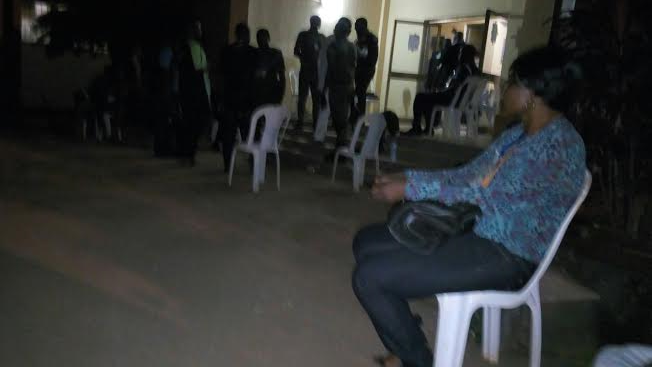
Around 7:30pm on Wednesday, I arrived at the INEC office in Benin for the official announcement of the results. I decided to charge my gadgets at the lobby (since there was opportunity to do so) before heading for the collation center. Not up to 30 minutes there, a senior police officer came, and asked those manning the entrance to order everyone out. Electoral observers were exempted. We were told a fresh screening would be conducted, and at the end of the screening only journalists from television stations were given access to the hall.
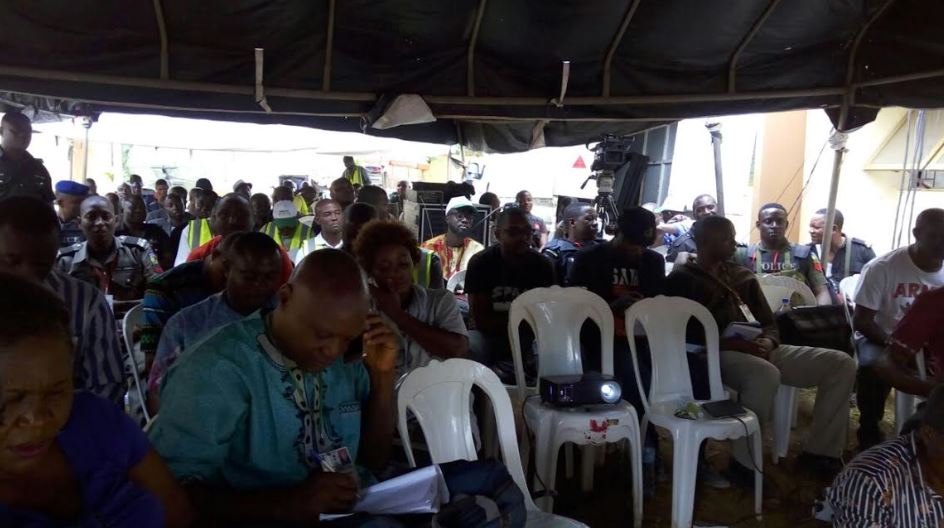
Print and online reporters were asked to relocate to a canopy beside the administrative building. No explanation was given for this, but words later went round that the hall wasn’t spacious.
A projector was mounted in the front of the canopy, which had up to 70 chairs arranged haphazardly. The sounds of the generators of AIT and Channels, which had their broadcasting vans stationed behind the canopy, made the place anything but comfortable. To worsen matters, mosquitoes were all over, and some colleagues who were pressed didn’t deem it fit to walk a distance before urinating, leaving one at the mercy of an offensive odour.
The story of toilets in public institutions would be told some other time. Some reporters who couldn’t cope returned to their hotel rooms. No communication from INEC on when collation would commence. Around 11:30pm, some top electoral officials left. Minutes later, the Channels and AIT crew shut their equipment and left too.
It was around 12:30am that the News Agency of Nigeria (NAN) uploaded a report that collation of results had been postponed till the next day.
SLEEPING IN THE MIDST OF GUNS
I have lost count of the times I had gone to bed wishing the night could be over within the twinkle of an eye. The solemn peace I enjoy at night vanished after a notorious gang called 1 million boys struck within my vicinity in Lagos. Ever since that attack, any strange sound rattled me, but not on this night when INEC left some reporters at the mercy of cold and mosquitoes.
Apart from the well-armed security personnel manning the gate, there were gun-wielding policemen and NSCDC officials all over. The tired ones even found their way to the canopy to catch some rest. Body no be wood, goes that native parlance.
As I placed both legs on a chair, and rested my back on another, I started missing the comfort of my bed. I imagined how lonely my beautiful wife was and prayed for her safety. A tinge of fear crept within me, but this time around I got bothered over how police officers could be reckless at times. What if a bullet mistakenly flies out of the gun of an officer? Thank God that never happened.
A LOW RANKING OFFICER ASKED THE DIG TO SHUT UP
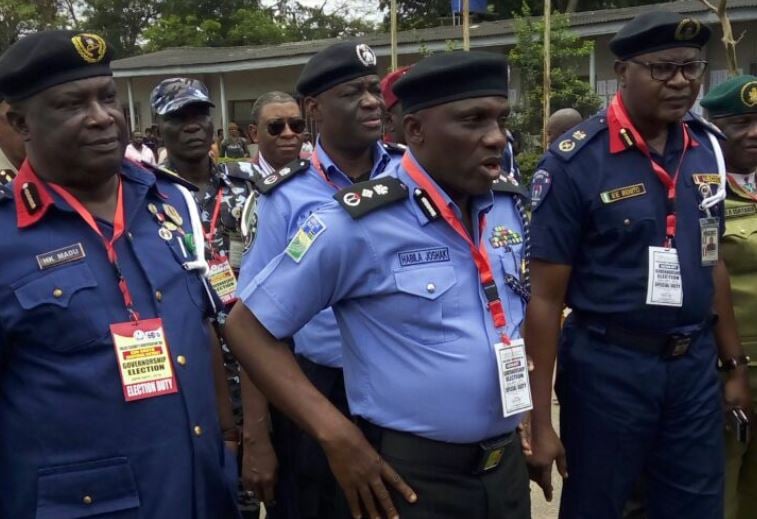
After the long wait, collation begun around 9:30am on Thursday. We could only see the figures displayed on the projector, but couldn’t see or listen to what was going on inside the hall. The speaker, which was supposed to provide sound was not loud enough, so we were worried each time unusual sounds distracted us.
The number of policemen under the canopy increased when collation started. This time around they were a little bit friendly, occasionally asking for clarification on some issues, and it was obvious that they were divided along party lines.
A colleague explained how soldiers confided in him that ballot papers were found in police vans.
About two hours into the collation, the sound of a blaring siren from the convoy of a VIP made it impossible to hear what was being said. “That could be the DIG,” a colleague guessed, and a mobile policeman with Hausa accent responded: “Y im no off that thing and shut up?”
We were all stunned over the utterance, but the officer smiled. Perhaps he was joking, or he meant it. Afterall, the welfare of the security personnel was poor. Most of them were eager to return to their base. They had lost interest in the exercise.
An officer inquired if they could return to their stations on that same day, but when told that they might be asked to stay longer as a result of the protests across town, he threatened: “My brother, hungry dey o, and after hungry na anger. We go pour the anger on the public be that.”
SHOCKING RESULTS AND REACTIONS
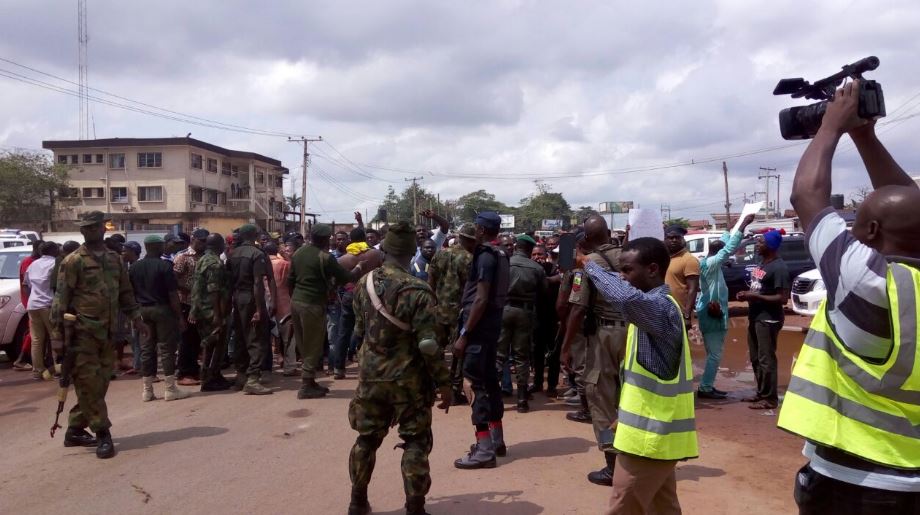
Nineteen political parties partook in the election, but one doesn’t need a soothsayer to be told that it was a two-way horse race. In fact, some predicted a rerun, but midway into the collation, the winner was already known.
The official announcement took many by surprise because result pasted at some of the polling stations didn’t show that there could be a margin of over 66,000 between the two top contenders.
Supporters of the losing party within INEC premises were aghast, protesters had gathered in front of INEC office, and Matthew Urhoghide, senator representing Edo south, briefed reporters right within the commission’s headquarters in Edo, where the incoming deputy governor had earlier stormed in protest.
While Urhoghide was expressing his displeasure, a member of the winning party interrupted him, almost disrupting the interview, but the maturity displayed by the senator prevented the situation from getting out of hand. One could feel tension in the air.
The arguments have been going back and forth on what INEC did or should have done, how political parties acted or shouldn’t have, but experiences have made me realise that political parties have the same ideology, forget the difference in their names and logos.
If a PDP government could postpone an election at the dying minute, and APC toed that path too, then the major difference is that while one shifted it by six weeks, the other decided to divide the period by three.
The allegations raised by the PDP today are reminders of what the ruling party did when they considered themselves as underdogs. The political class needs to have a rethink. The masses obviously deserve better.
1 comments

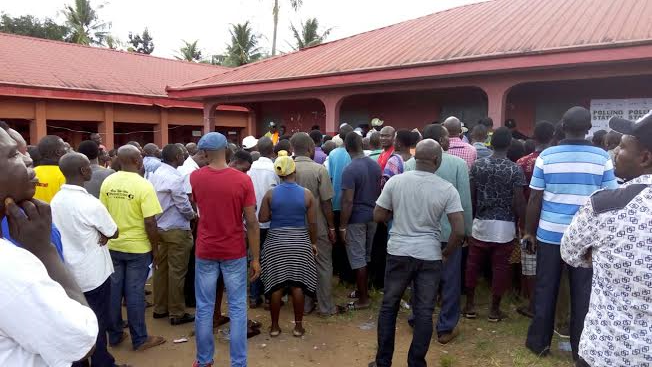
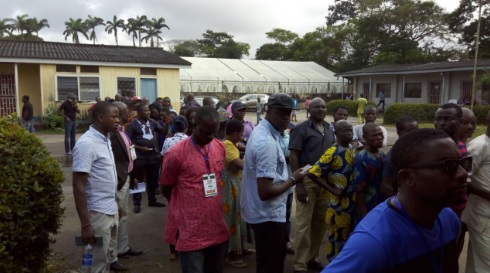
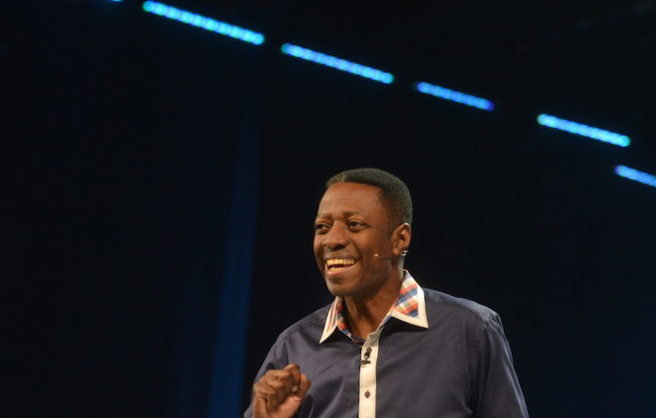
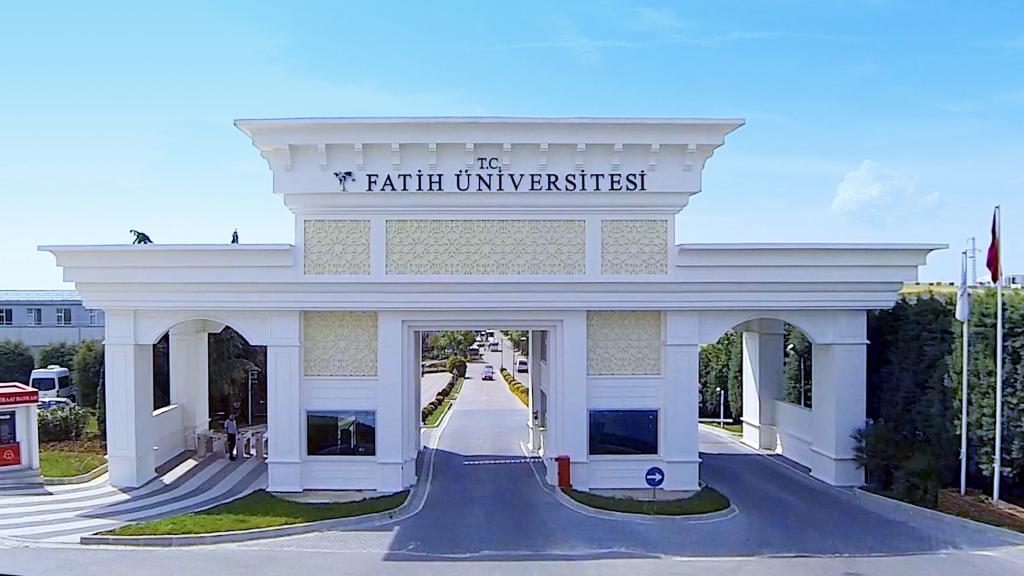

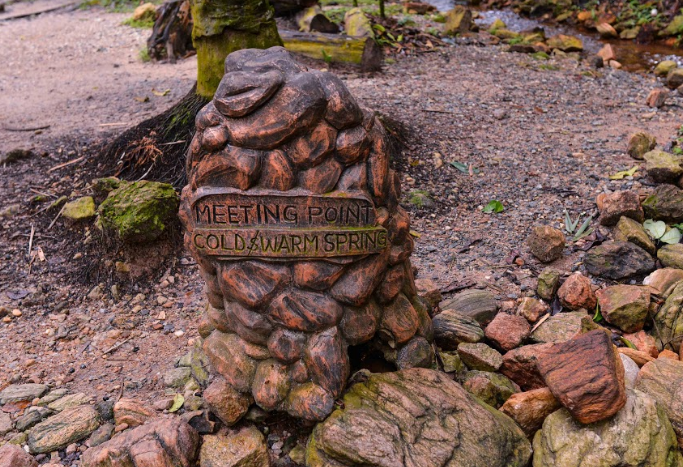
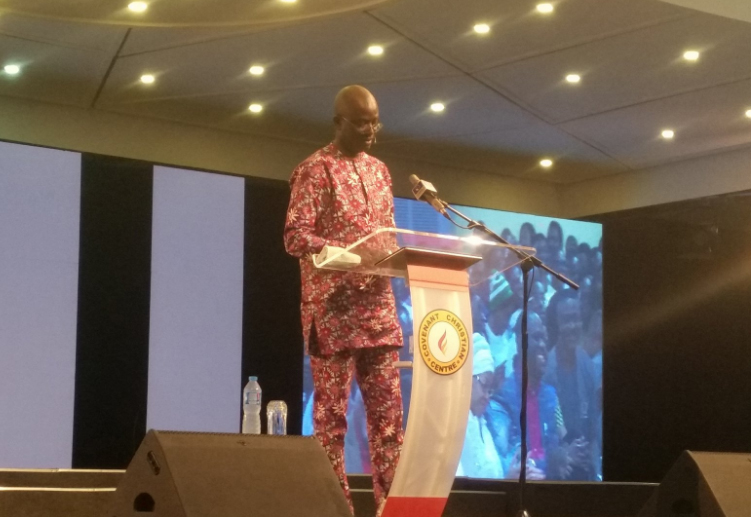

This report is from the lens of a PDP man. Could you commission an APC apologist to write one so that we can have a balance